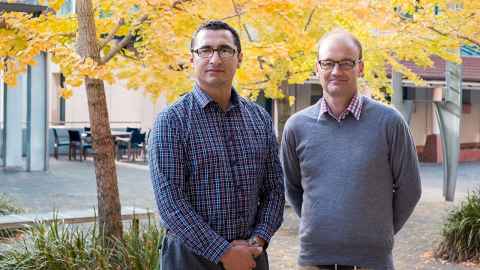Curbing sugar intake needs to start at the top of the food chain
31 October 2019
As trick-or-treating children anticipated their Halloween haul, scientists, dentists, doctors and the beverage industry met to discuss the impact sugar has on New Zealanders’ health.

The sixth annual symposium of FIZZ (Fighting Sugar in Soft Drinks) took place at the University of Auckland on October 31, 2019.
The researchers and public health doctors of FIZZ are pushing to stop sales of sugary drinks because of the beverages’ impact on health, which includes obesity, type-2 diabetes, rotten teeth, gout, cardiovascular disease and premature death. They strongly advocate for the government to introduce a tax on sugary drinks and to remove them from school cafeterias.
University of Auckland senior lecturer in the Pacific Health Department of the School of Population Health, FIZZ founder and chair Dr Gerhard Sundborn said while the speaker line-up was inspiring, it was disappointing that none of the government representatives invited to the event had indicated they would attend.
“We know that we have the second-highest child obesity rates in the OECD and the government still can't stop kids buying Coke at school. And the industry continues to load baby foods with sugar - the white addictive powder that’s making our country sick,” said Dr Sundborn.
“Yet successive governments seem unwilling to take seriously the evidence that shows sugar taxes are an effective way to curb sugary drink consumption.”
Surely now the government has a responsibility to regulate the industry.... The UK has done it, so why can’t we?
NZ Beverage Guidance Panel member Dr Simon Thornley, public health physician and senior lecturer in the Section of Epidemiology and Biostatistics at the School of Population Health, said there was a glimmer of hope with Countdown presenting on how the supermarket chain reached its decision to age-restrict energy drinks.
"This is very positive, but it’s still not decision-making high enough up the food chain,” he said.
“Surely now the government has a responsibility to regulate the industry. Instead they watch growing sales of addictive drinks that continue to expand our waistlines, lengthen our dental clinic waiting lists and push us down the diabetes road. The UK has done it, so why can’t we?"
Other speakers at the symposium include:
- Australian addiction neuroscientist Dr Selena Bartlett on the research that inadvertently led her to evidence of how highly addictive sugar is.
- Australian renowned sports medicine expert Dr Peter Brukner on the links between sugar consumption and the current non-communicable disease epidemic.
- New Zealand dentists Dr Katie Bach and Dr Rob Beaglehole on the challenges of long dental waiting lists and removing the teeth of young children who have been raised on sugary drinks.
- Jill Ford of Refill NZ on the link between the movement against sugary drinks and minimising the use of single-use plastics.
- Ash adviser Ben Youdan on the similarities between ASH's anti-tobacco advocacy and the battle to stop food producers’ use of excess sugar in our food.
Media contact
Nicola Shepheard | Media adviser
DDI: 09 923 1515
Mob: 027 537 1319
Email: n.shepheard@auckland.ac.nz